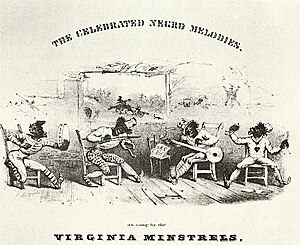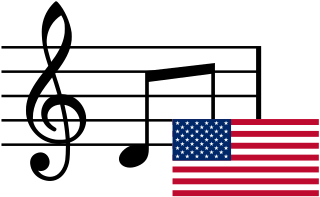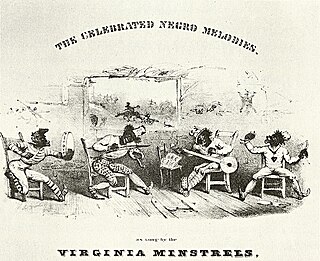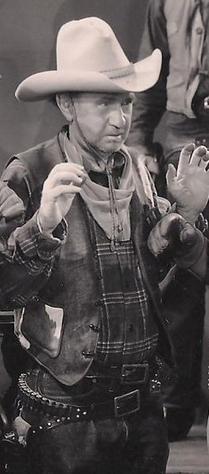| Title | Artist | Label/catalog # | Year |
|---|
| It’s Tight Like That | Tampa Red’s Hokum Jug Band | Vocalion 1228 | 1928 |
| It’s Tight Like That No. 2 | Georgia Tom and Tampa Red | Vocalion 1244 | 1929 |
| It’s Tight Like That No. 3 | Georgia Tom and Tampa Red | Vocalion 1418 | 1929 |
| (Honey) It’s Tight Like That | Harry Jones and Papa Too Sweet | OKeh 6581 | 1929 |
| It’s Tight Like That | Tampa Red | Vocalion 1258 | 1929 |
| It’s Tight Like That | McKinney’s Cotton Pickers | Victor V38013-A | 1928 |
| It’s Tight Like That | Walter Barnes and his Royal Creolians | Brunswick 4244 | 1928 |
| It’s Tight Like That | Jimmie Noone’s Apex Club Orchestra, with Junie Cobb | Vocalion 1238 | 1928 |
| It’s Tight Like That | Clara Smith | Columbia 14398D | 1929 |
| It’s Tight Like That | Luis Russell and his Burning Eight | OKeh 8656 Paramount R2186, Parlophone R1286 | 1929 |
| It’s Tight Like That | Zach Whyte’s Chocolate Beau Brummels | Champion 15715, Supertone 9368 | 1929 |
| It’s Tight Like That | Hilda Alexander and Mamie McClure | Brunswick 7069 | 1929 |
| It’s Tight Like That | Southern Blues Singers, accompanied by Cow Cow Davenport | Gennett 6826 | 1929 |
| It’s Tight Like That | Eddie Mapp, James Moore and Slim Barton | QRS R7081 | 1929 |
| It’s Tight Like That | Otis Mote | OKeh 45389 | 1929 |
| (It’s) Tight Like This | Louis Armstrong and his Savoy Five | OKeh 8649 | 1928 |
| Who Said It’s Tight Like That | The Washingtonians (Duke Ellington and his Orchestra) | Cameo 9195 | 1929 |
| Shake That Thing | Papa Charlie Jackson | Paramount 12281 | 1925 |
| Shake That Thing | Clarence Williams’s Blue Five | OKeh 8267 | 1925 |
| Shake That Thing | Ethel Waters | Columbia 14116D | 1925 |
| Shake That Thing | Billy Wirges and his Orchestra | Perfect 14533, Pathé 36352 | 1925 |
| Shake That Thing | Viola McCoy | Vocalion 15245 | 1926 |
| Shake That Thing | Viola Bartlette | Paramount 12345 | 1926 |
| Shake That Thing | Jimmy O’Bryant’s Famous Washboard Band | Paramount 12346A | 1926 |
| Shake That Thing | Abe Lyman and his Californians | Brunswick 3069 | 1926 |
| Georgia Grind | Louis Armstrong and his Hot Five | OKeh 8318 | 1926 |
| Matchbox Blues | Blind Lemon Jefferson | Paramount 12474 | 1927 |
| Black Bottom Stomp | Jelly Roll Morton and his Red Hot Peppers | Victor 20221 | 1926 |
| Down to the Bricks | Jimmy O’Bryant’s Famous Original Washboard Band | Paramount 12308 | 1925 |
| You’ve Got The Right Key, but the Wrong Keyhole | Virginia Liston with Clarence Williams’ Blue Five | OKeh 8173 | 1924 |
| Hyena Stomp | Jelly Roll Morton and his Red Hot Peppers | Victor 20772A | 1927 |
| Beedle-Um-Bum | The Hokum Boys | Paramount 12714 | 1929 |
| Selling That Stuff | The Hokum Boys | Paramount 12714 | 1929 |
| Hey Mama, It’s Nice Like That, Parts 1–2 | Jim Jackson | Vocalion 1284 | 1929 |
| It’s a Fight Like That | Blind Ben Covington | Brunswick 7127 | 1929 |
| She Moves It Just Right | Barbecue Bob | Columbia 14546D | 1929 |
| Thirty-Eight and Plus | John Byrd and Washboard Walter | Gennett 7157 Champion 15972, Supertone 9682, Varsity 6044 | 1930 |
| It Feels So Good, Parts 1–2 | Lonnie Johnson and Spencer Williams | OKeh 8664, Harmony 1087 | 1929 |
| It Feels So Good, Parts 3–4 | Lonnie Johnson and Spencer Williams | OKeh 8697 Vocalion 03094 | 1929 |
| I Don’t Like That | Barefoot Bill and Pillie Bolling | Columbia 14554-D | 1930 |
| Loose Like That | Alura Mack | Gennett 6876, Supertone 9440 Champion 15754 | 1929 |
| It’s Hot Like That | Charlie McCoy | Brunswick 7156 | 1930 |
| Wringing That Thing | Macon Ed and Tampa Joe | OKeh 8676 | 1929 |
| That Will Be Alright | Memphis Minnie and Kansas Joe | Columbia 14439D | 1929 |
| Bottle It Up and Go | Picaninny Jug Band | Champion 16615 | 1932 |
| Diddie-Wa-Diddie | Blind Blake | Paramount 12888 | 1929 |
| Diddle-Da-Diddle | Georgia Cotton Pickers | Columbia 14577-D | 1930 |
| Giving It Away | Birmingham Jug Band | OKeh 8908 | 1930 |
| Wipe It Off | Lonnie Johnson and Clarence Williams | OKeh 8762 | 1930 |
| She Skuffles That Ruff | Lovin’ Sam Theard | Brunswick 7075 | 1929 |
| Struttin’ My Stuff | Lucille Bogan | Brunswick 7193 | 1930 |
| She’s Got Good Stuff | Charlie Spand | Paramount 13005 | 1930 |
| Move That Thing | Georgia Peanut Boys | Victor 23274 | 1930 |
| Tapping That Thing | Burse and Stephen | Champion 16654 | 1932 |
| We Can Sell That Thing | Roosevelt Sykes | Paramount 13004 | 1930 |
| Smack That Thing | Walter Coleman | Decca 7157 | 1936 |
| Somebody’s Been Using That Thing | Famous Hokum Boys | Banner 712, Oriole 8010 Perfect 150, Romeo 5010, Jewel 20010, Homestead 16099 | 1930 |
| Dallas Rag | Dallas String Band | Columbia 14290-D | 1927 |
| Hokum Blues | Dallas String Band | Columbia 14389-D | 1928 |
| Bohunkus Blues | Blythe’s Washboard Band | Paramount 12368 | 1926 |
| The King of the Zulus | Louis Armstrong and his Hot Five | OKeh 8396A OKeh 41581 | 1926 |
| That Stuff I Got | Famous Hokum Boys | Oriole 8059, Banner 32139 Perfect 174, Romeo 5059 | 1930 |
| I Had to Give Up Gym | Hokum Boys | Paramount 12746 | 1929 |
| We Don’t Sell It Here No More | Hokum Boys | Brunswick 7070 | 1929 |
| Let Me Have It | Hokum Boys | Paramount 12897 | 1929 |
| Can I Get Some of That? | Coot Grant and Sox Wilson | QRS R7065 Paramount 12833 | 1929 |
| She Shakes a Mean Ashcan | Coot Grant and Sox Wilson | Columbia 14598-D | 1931 |
| Big Trunk Blues | Coot Grant and Sox Wilson | QRS R7085 Paramount 12831 | 1929 |
| I Ain’t Gonna Give You None | Coot Grant and Sox Wilson | QRS R7085 Paramount 12831 | 1929 |
| What Is It That Tastes Like Gravy? | Tampa Red | Vocalion 1426, Supertone S2225 | 1929 |
| Get ’Em from the Peanut Man (Hot Nuts) | Lil Johnson | Champion 50002 | 1935 |
| Banana in Your Fruit Basket | Bo Carter | Columbia 14661-D Vocalion 03091, Bluebird B5594 | 1931 |
| Sweet Honey Hole | Blind Boy Fuller | ARC 7-04-73 Vocalion 03254, Conqueror 8847 | 1937 |
| Please Warm My Wiener | Bo Carter | Bluebird B6058 | 1935 |
| Riverside Blues | King Oliver’s Jazz Band | OKeh 8484 | 1923 |
| I Just Want a Daddy to Call My Own | Faye Barnes | Paramount 12136 | 1921 |
| I Just Want a Daddy to Call My Own | Monette Moore | Paramount 12028 | 1923 |
| I Just Want a Daddy to Call My Own | Alice Carter | OKeh S-71595 | 1923 |
| Muddy Water Blues | Monette Moore | Paramount 12067 | 1923 |
| Eagle Rock Me, Papa | Sara Martin with Clarence Williams’ Blue Five | OKeh S-72858 | 1924 |
| Don’t Shake It No More | Trixie Smith | Paramount 12211 | 1924 |
| Don’t Shake It No More | Lovie Austin’s Blues Serenaders | Paramount 12300 | 1925 |
| Freight Train Blues | Trixie Smith | Paramount 12211 | 1924 |
| That Creole Band | Albert Wynn and his Gut Bucket Five | OKeh 9789 | 1926 |
| Easy Rider Blues | Blind Lemon Jefferson | Paramount 12474 | 1927 |
| Explaining the Blues | Ma Rainey and her Georgia Band | Paramount 12284 | 1925 |
| Stormy Sea Blues | Ma Rainey and her Georgia Band | Paramount 12295 | 1925 |
| Nighttime Blues | Ma Rainey and her Georgia Band | Paramount 12303 | 1925 |
| Memphis Bound Blues | Ma Rainey and her Georgia Band | Paramount 12311 | 1925 |
| Slave to the Blues | Ma Rainey and her Georgia Band | Paramount 12332 | 1925 |
| Chain Gang Blues | Ma Rainey and her Georgia Band | Paramount 12388 | 1925 |
| Bessemer Bound Blues | Ma Rainey and her Georgia Band | Paramount 12374 | 1925 |
| Through Train Blues | Tampa Red | Paramount 12685 | 1928 |
| Salty Dog Blues | Papa Charlie Jackson | Paramount 12236, Broadway 5001 | 1924 |
| Salty Dog Blues | Freddie Keppard’s Jazz Cardinals | Paramount 12399 | 1926 |
| Chicago Flip | Whistler’s Jug Band | Gennett 5544 | 1924 |
| The Jug Band Special | Whistler’s Jug Band | OKeh 8816 | 1927 |
| I’m Looking for the Bully of the Town | Memphis Jug Band | Victor 20781 | 1927 |
| Sugar Pudding | Memphis Jug Band | Victor 21740 | 1928 |
| On the Road Again | Memphis Jug Band | Victor V38015 | 1928 |
| She’s in the Graveyard Now | Earl McDonald’s Original Louisville Jug Band | Columbia 14255-D | 1924 |
| Minglewood Blues | Cannon’s Jug Stompers | Victor 21267 | 1918 |
| Jazz Gypsy Blues | Banjo Joe [Gus Cannon] | Paramount 12064 | 1928 |
| My Money Never Runs Out | Banjo Joe [Gus Cannon] | Paramount 12064 | 1928 |
| Boodle-Am-Shake | Dixieland Jug Blowers | Victor 20480 | 1926 |
| House Rent Rag | Dixieland Jug Blowers | Victor 20415 | 1926 |
| Skoodlum Blues | Jimmy O’Bryant’s Famous Original Washboard Band | Paramount 12260 | 1925 |
| Georgia Breakdown | Jimmy O’Bryant’s Famous Original Washboard Band | Paramount 12277 | 1925 |
| Uncle Bud | Tampa Red and Georgia Tom | Vocalion 1268, Supertone S2224 | 1929 |
| How Long, How Long | Leroy Carr | Vocalion 1191 | 1928 |
| It Ain’t No Good, Parts 1–2 | Charlie McCoy with Chatman’s Mississippi Hot Footers | Brunswick 7118, Melotone 12303 | 1929 |
| Bottle It Up and Go | Tommy McClennan | Bluebird B8378, Montgomery Ward M8787 | 1939 |
| Step It Up and Go | Blind Boy Fuller | Vocalion 05476, Conqueror 9274 Columbia 30011 Columbia 37230 | 1940 |
| Home Town Skiffle, Parts 1–2 | Paramount All-Stars | Paramount 12886 | 1929 |
| Georgia Grind | Ethel Waters | Columbia 14116-D | 1925 |













